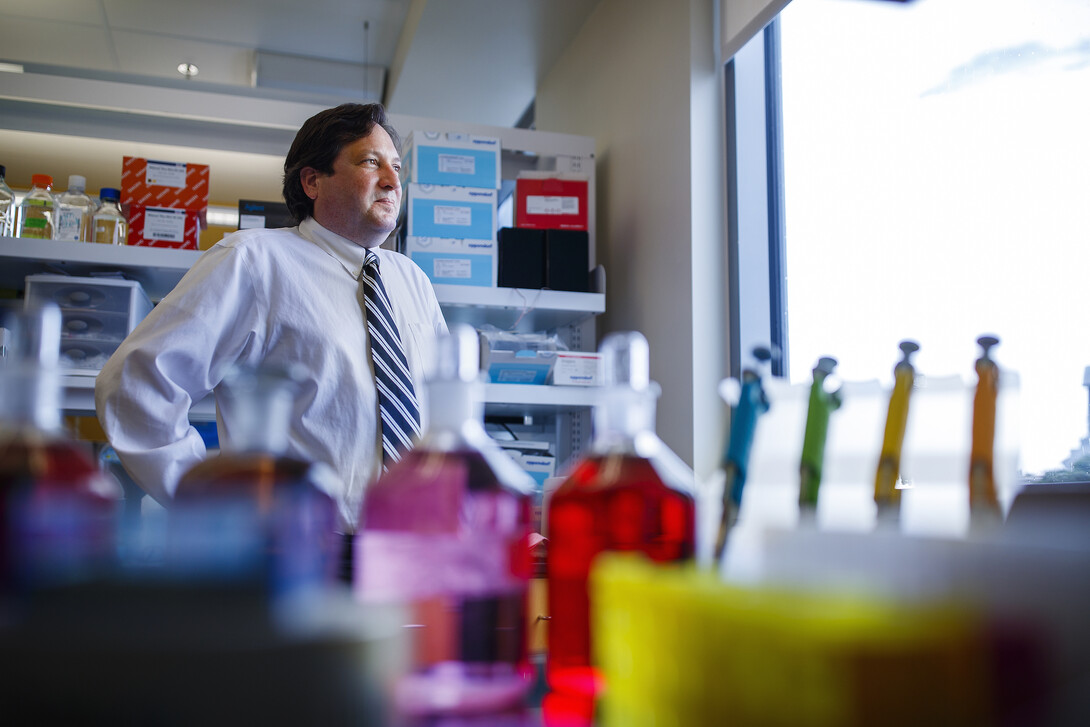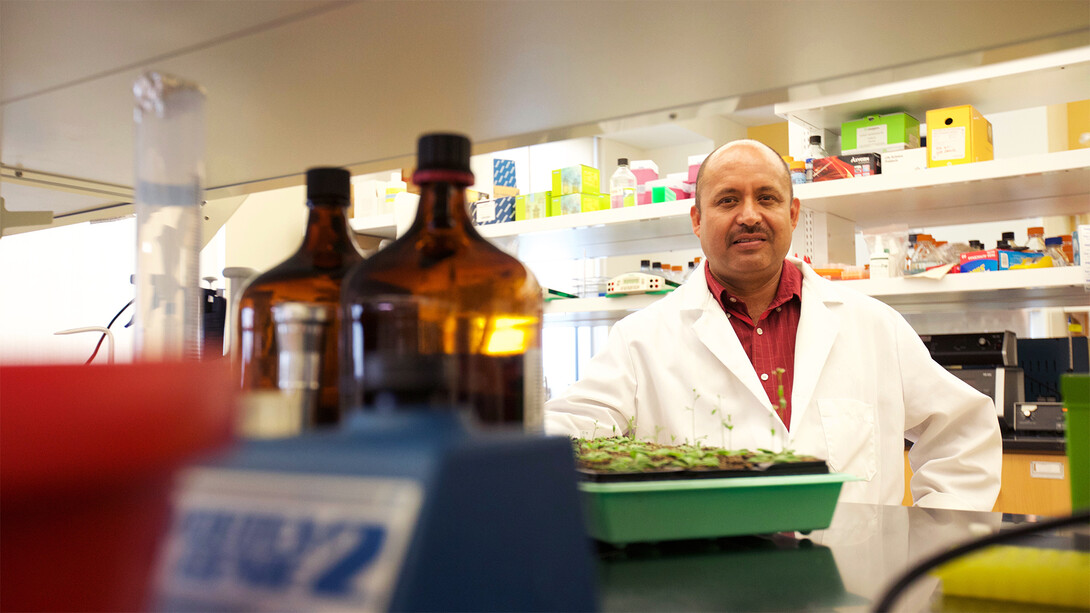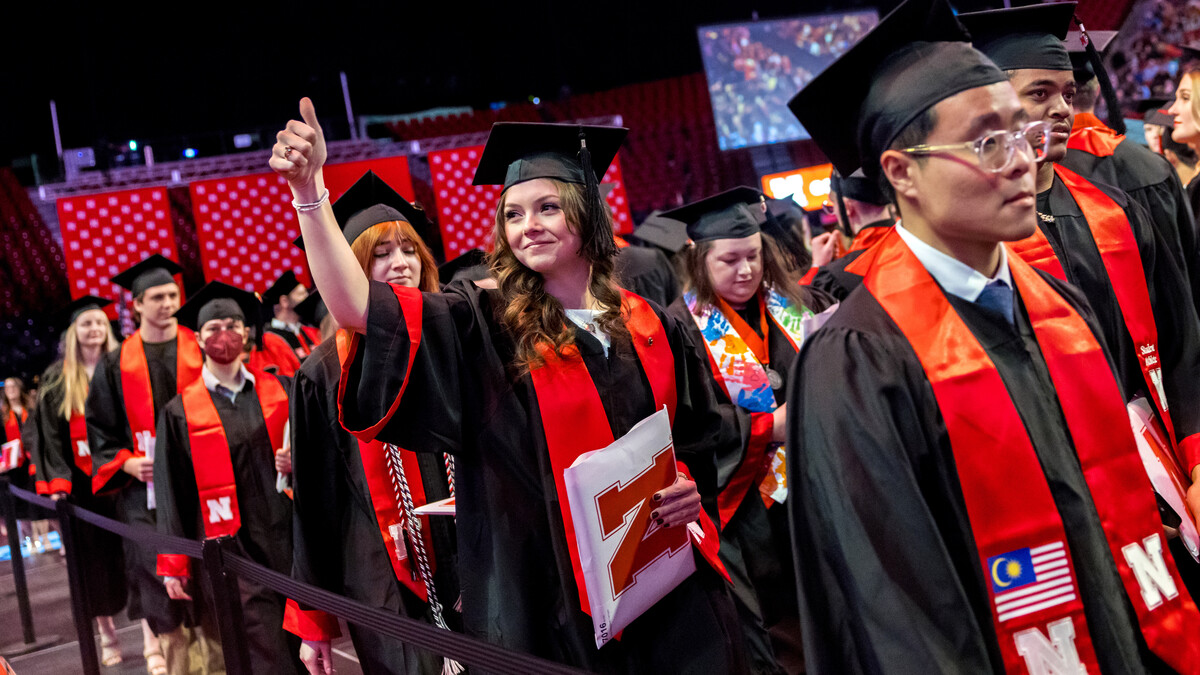
Eric Weaver, associate professor in the University of Nebraska-Lincoln’s School of Biological Sciences, is the new permanent director of the Nebraska Center for Virology. Hernan Garcia-Ruiz, associate professor of virology in the Department of Plant Pathology, will serve as the center’s new associate director.
Weaver succeeds Charles Woods, the Lewis Lehr/3M University Professor of virology. Woods served as the center’s director for nearly 20 years, from its founding in 2000 until 2019. Jennifer Mize Nelson, director of research strategy and infrastructure in the Office of Research and Economic Development, and Deb Hamernik, former associate vice chancellor for research, each served as interim director prior to Weaver’s appointment.
“This is an exciting time for one of Nebraska’s most distinguished research centers,” said Bob Wilhelm, vice chancellor for research and economic development. “Eric Weaver and Hernan Garcia-Ruiz have built impressive research programs and are recognized national experts in the field. I am confident that with their leadership, NCV is positioned to contribute to scientific breakthroughs in virology and health for people, animals and plants.”
Weaver’s research explores the use of bioinformatics, phylogenetics, immunology and molecular biology to study the basic mechanisms of host-pathogen interactions. He has spent years researching how to develop a vaccine that protects against as many strains of influenza as possible, including those that have yet to emerge. Weaver joined the university’s faculty in 2015. Prior to that, he spent eight years as an associate professor and research associate at the Mayo Clinic.
“Virology creates an intersection between many scientific disciplines,” Weaver said. “Our successful path forward will be through continued and expanded collaborations across all fields of science in order to pursue world-class research that will have direct impacts on science and society.”

Garcia-Ruiz’s research is focused on the mechanisms of plant-virus interactions, specifically antiviral immunity, gene silencing, the identification of cellular genes that condition susceptibility or resistance to viruses, and genetic variation in viruses. He joined UNL in 2013.
“Over the past 18 months, the entire world has become unfortunately very aware of the dangers virus present and the importance of robust virology research programs,” said Mike Boehm, University of Nebraska vice president and Harlan vice chancellor for the Institute of Agriculture and Natural Resources. “I am thrilled that Eric Weaver and Hernan Garcia-Ruiz will lead the Nebraska Center for Virology, and I am confident the center’s track record of excellent research will flourish under their nurturing and leadership.”
Mark Button, dean of the College of Arts and Sciences, said the combined experience and expertise of Weaver and Garcia-Ruiz position the lab to move the field of virology forward.
“Dr. Weaver has a proven track-record of building collaborative and interdisciplinary research teams that advance cutting-edge science and address challenges that are critical to human, animal, and plant health,” Button said. “Dr. Weaver has the experience and expertise to help facilitate new and creative scientific collaborations, expand research opportunities for graduate and undergraduate students, and extend the reach and impact of the Nebraska Center for Virology. Given the critical importance of virology, immunology, and biomedical engineering for the times in which we live, we are excited about the future of NCV under the direction of Dr. Weaver and Dr. Garcia-Ruiz.”
The Nebraska Center for Virology was established in the fall of 2000 with an award from the National Institutes of Health Institutional Development Award program. The center combines the expertise of three leading biomedical research institutions: University of Nebraska–Lincoln, University of Nebraska Medical Center and Creighton University. Together, affiliated faculty and graduate students work on to advance the understanding and treatment of viral diseases including HIV, Kaposi’s sarcoma and herpes, as well as viruses found in plants and animals. The center is housed in the Ken Morrison Life Sciences Research Center.







